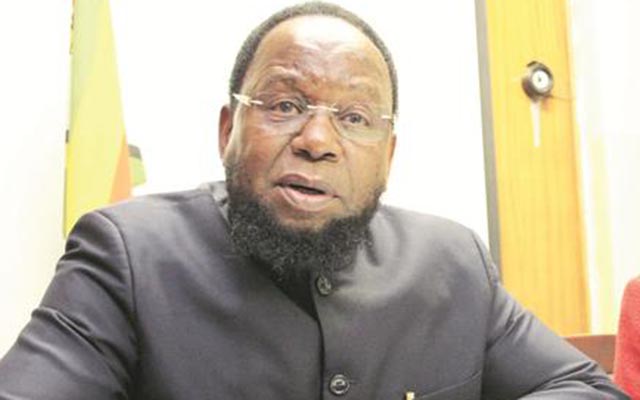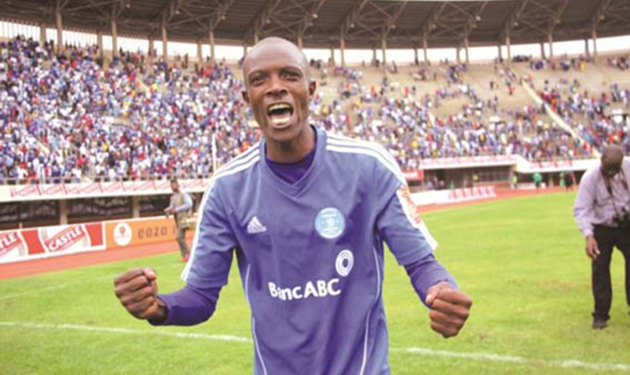Govt adopts sports policy

Walter Nyamukondiwa in Chinhoyi
Government has adopted the Sports and Recreation Policy, which will promote inclusive participation of previously marginalised communities and remodel sport into a multi-million-dollar industry. The policy is expected to chart the course for sport and recreation development in the country so that it contributes significantly to the economy. It was adopted by Cabinet on Tuesday evening, paving the way for its operationalisation to fine-tune the country’s systems to tap raw talent and develop it to effectively represent the country and compete for honours in international competitions.
The country’s athletes have not fared well on the international stage, with sprinklings of accolades which have left Zimbabwe being counted among minnows in most sporting disciplines.
Sport and Recreation Minister Makhosini Hlongwane announced the adoption of the policy at the Youth in Sport Conference held for athletes at the 14th Edition of the National Youth Games.
“It is my pleasure to announce that the Sports and Recreation Policy was adopted by the Government at around 6:30pm on Tuesday evening,” he said. “If you cast back you will realise that sport was not for everyone but a privileged few who could afford. It was organised along racial and ethnic lines. This is what the policy seeks to address.”
The policy, he said, will see the clustering of sporting communities into schools, colleges, the uniformed services and community sports, which will broaden the scope of participation by all segments of society.
Among a plethora of reforms envisaged in the new policy is the reformatting of the National Youth Games, which will see sports and recreational festivals starting at ward level, which feed into district and subsequently national competitions.
National competitions will produce teams that will represent the country in international competition. One of the country’s undoing has been the inability to match conditioning standards of international athletes, leading to psychological and physiological shortcomings.
“In this regard, we are going to set up high performance centres that specialise in conditioning our athletes to meet the physical and psychological demand in competitions,” said Hlongwane.
With a $620 billion cake in the world sporting industry, he said sport has to be organised before calling on the corporate world to play ball in the mobilisation of resources and funding. The policy will be reviewed after every five years and will look at the industry value chain, which includes paraphernalia such as jerseys and equipment among others.
It seeks to honour the legacy of sports personalities through induction into the Hall of Fame and sports diplomacy to ensure Zimbabwean associations and officials are represented in regional and international bodies.
On funding, he said the policy will address anomalies such as the poor funding of the high-flying Mighty Warriors. “Gender disparity is one of the issues the policy seeks to address because I don’t understand how the best football team in the name of out Mighty Warriors is not properly funded when the corporate world is prepared to fund poor performing teams like the Warriors.
“This is simply because they are girls,” he said. The policy will also provide for match-fixing and doping legislation while a sports dispute tribunal will also be set up. It will resolve disputes in sport, which according to most association and bodies should not be taken to conventional courts of law.
The Sport and Recreation Policy will play complementary roles with the new Education Curriculum, which also seeks to entrench sports and arts as key components in the education system.
Primary and Secondary Education Minister Lazurus Dokora said sport and arts will start taking root from ECD level in a spiral format that will eventually feed into the semi-professional and professional set up.
“We need to strike a balance between academic excellence and the well-being of a student. So every child will do sport and mass displays from ECD to Form 6 even if they will specialise in STEM subjects,” he said.
Youth, Indigenisation and Economic Empowerment Minister Patrick Zhuwao said as part of the complementary nature of sport, his ministry will vocationalise sport through making Vocational Training Centres sporting hubs.
He said Government should harness the potential in youths below 35 years of age as they constitute 77 percent of the population. About 2 440 athletes and officials have been accredited at this year’s National Youth Games being hosted by Mashonaland West Province. The conference was attended by Minister of State for Mashonaland West Province Faber Chidarikire and officials from the Sports and Recreation Commission.









Comments